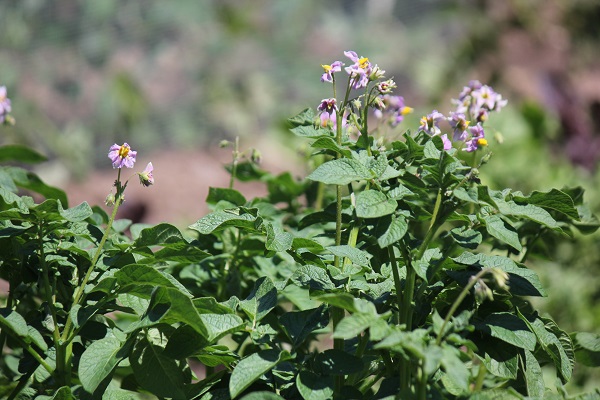Five Valuable Organic Insecticides
Gardens are always at risk of infiltration by pests like ants, aphids, and cabbage worms.
When these little intruders attack, organic gardeners need not fear. Organic insecticides are a safe, non-toxic (to humans), and effective solution. This article will elaborate on some of the best organic pesticides that will wipe out infestations naturally, without putting humans, birds, or mammals at risk.
 |
| The drugstore is the best place to find small quantity sulfur. |
- Diatomaceous Earth
Diatomaceous earth is a naturally occurring rock that when crumbled, turns into a mildly abrasive powder that is gentle enough for human or pet consumption, provided that food grade earth is used. However, it is deadly to insects. The fine powder absorbs lipids from the exoskeleton of the tiny intruder, dehydrating it to death. For an insecticide that will both destroy and repel garden invaders, blend finely ground cayenne pepper with diatomaceous earth that's been prepared as directed on its packaging, and sprinkle the blend on and around your plants.
- Neem Oil
Neem oil is the most commonly used ingredient in all organic pesticides. Derived from the Neem tree, native to India, this oil actually works as an anti-feedant, meaning that insects are much less likely to even try eating a plant that has been touched by neem oil. If an insect does try consuming the neem oil, its hormones will be affected to the extent that they will forget to eat, reproduce, or move, and will eventually die. Neem oil can be purchased at garden centers or through this Amazon link. Garden Safe 93179 16-Ounce Neem Oil, Case Pack of 1
- Mineral Oil or other Oils
Spraying oil over your crops will work by suffocating those insects who venture onto them. Mineral oils or cottonseed oils are the preferred varieties.
- Detergent/Water Blends
Organic liquid dish soap works well as an insecticide, and there are a number of ways that you can increase the potency of it, by using other organic ingredients. Begin by blending a teaspoon of detergent with a quart of water. Spray this blend on your crops, or add citrus oils, cayenne pepper, tobacco, or even pureed garlic.
- Sulfur
Sulfur has been used as a pesticide for a long time. Homer described the benefits of "pest-averting sulfur" 3,000 years ago. While sulfur can be irritating to the skin, it is not toxic to mammals and is a safe, organic solution to pest infestation.
Aside from these above-mentioned methods, regular watering will help to wash away pests as well as will hand-removing bugs when you see them.
Aside from these above-mentioned methods, regular watering will help to wash away pests as well as will hand-removing bugs when you see them.


Comments
Post a Comment
Thanks for your comments!